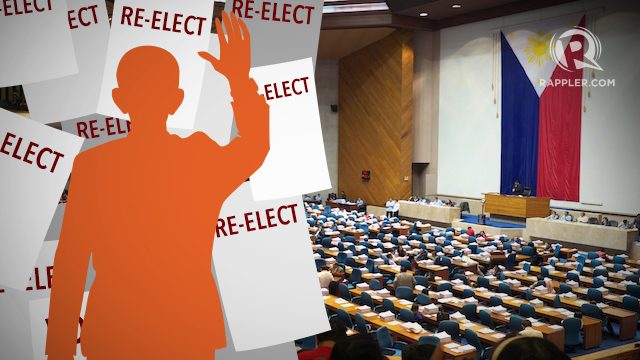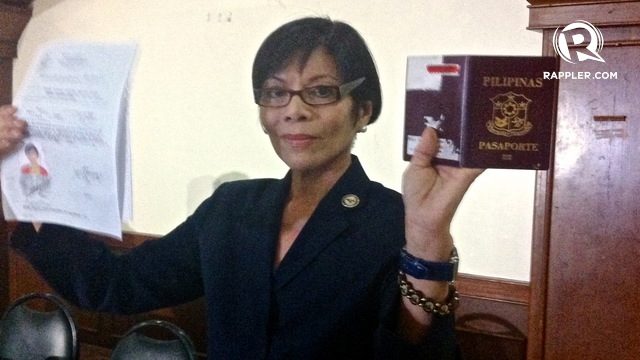SUMMARY
This is AI generated summarization, which may have errors. For context, always refer to the full article.

MANILA, Philippines – More than three-fourths of the incumbent district congressmen are eligible to seek reelection and continue being part of the House of Representatives.
Based on data collected by Rappler, out of the 234 district representatives, 91 (or 39%) are on their first term, while 87 (37%) are on their second consecutive term. All of them may run for reelection in the May 2016 elections.
Only 55 district representatives (or 24%) are on their third consecutive term in office and will no longer be allowed to run for the next elections. These officials have been congressmen since the 14th Congress, which started in 2007.
According to Article VI, Section 7 of the 1987 Constitution, no House member shall serve for more than 3 consecutive terms. Each term lasts 3 years.
The map below shows each district in the country, all colored depending on the number of terms of its representative. Yellow means its representative is on his or her first term, orange means its representative is in his or her second consecutive term, and red means its representative is on his or her third consecutive term.

Among those eligible for reelection is Marinduque Representative Regina Ongsiako Reyes, who still serves in office despite the Supreme Court upholding her disqualification. The Commission on Elections (Comelec) disqualified Reyes due to citizenship and residency issues, but House Speaker Feliciano Belmonte Jr allowed Reyes to keep her position.
The House Representatives Electoral Tribunal claims jurisdiction over the case, while the SC maintains that Comelec still has the final say. (READ: Poll protests: Is the Supreme Court clipping HRET’s powers?)
Another incumbent who may run for reelection is Siquijor Representative Marie Anne Pernes who succeeded her husband, Jose Jay Pernes, after he died of a heart attack only a day before the elections. The late Pernes won in the elections, and Comelec Resolution 9518 allowed the wife to serve her late husband’s term.
Enrique Cojuangco, who died from an aneurysm on May 12, was on his second term as Tarlac representative prior to his death and could have been eligible for reelection in 2016.
The administration’s Liberal Party (LP) currently dominates the House of Representatives with 111 members. Only 24 incumbent LP congressmen are on their third term, leaving 87 eligible to run again in 2016. This leaves the Liberal Party with a potential advantage in the 17th Congress.
In the 2013 elections, 159 district representatives ran for reelection, with 143 of them winning.
Partylist representatives
Meanwhile, out of 56 partylist representatives in Congress, 43 of them may continue to serve in office if ever their group wins in the 2016 elections.
Unlike district representatives, partylist congressmen are not elected directly. Rather, they are allocated seats in the House of Representatives based on the number of votes obtained by their partylist group in the elections. (Read: 8 things you need to know about the party list)
According to the Party List System Act (or Republic Act 7941), party list representatives become ineligible for election when they fail to obtain at least 2% of the votes cast in the party list system, or when they fail to obtain a seat in the second round of seat allocations for the party-list system in the last two preceding elections. (READ: Comelec stops purge of registered party-list groups)
While the public can still vote for the same party lists in the 2016 elections, the representatives on their third terms can no longer be nominated to represent their groups in the next Congress. Section 14 of the Party List System Act (or Republic Act 7941) says that partylist representatives can’t serve for more than 3 consecutive terms. – Rappler.com
Add a comment
How does this make you feel?
There are no comments yet. Add your comment to start the conversation.